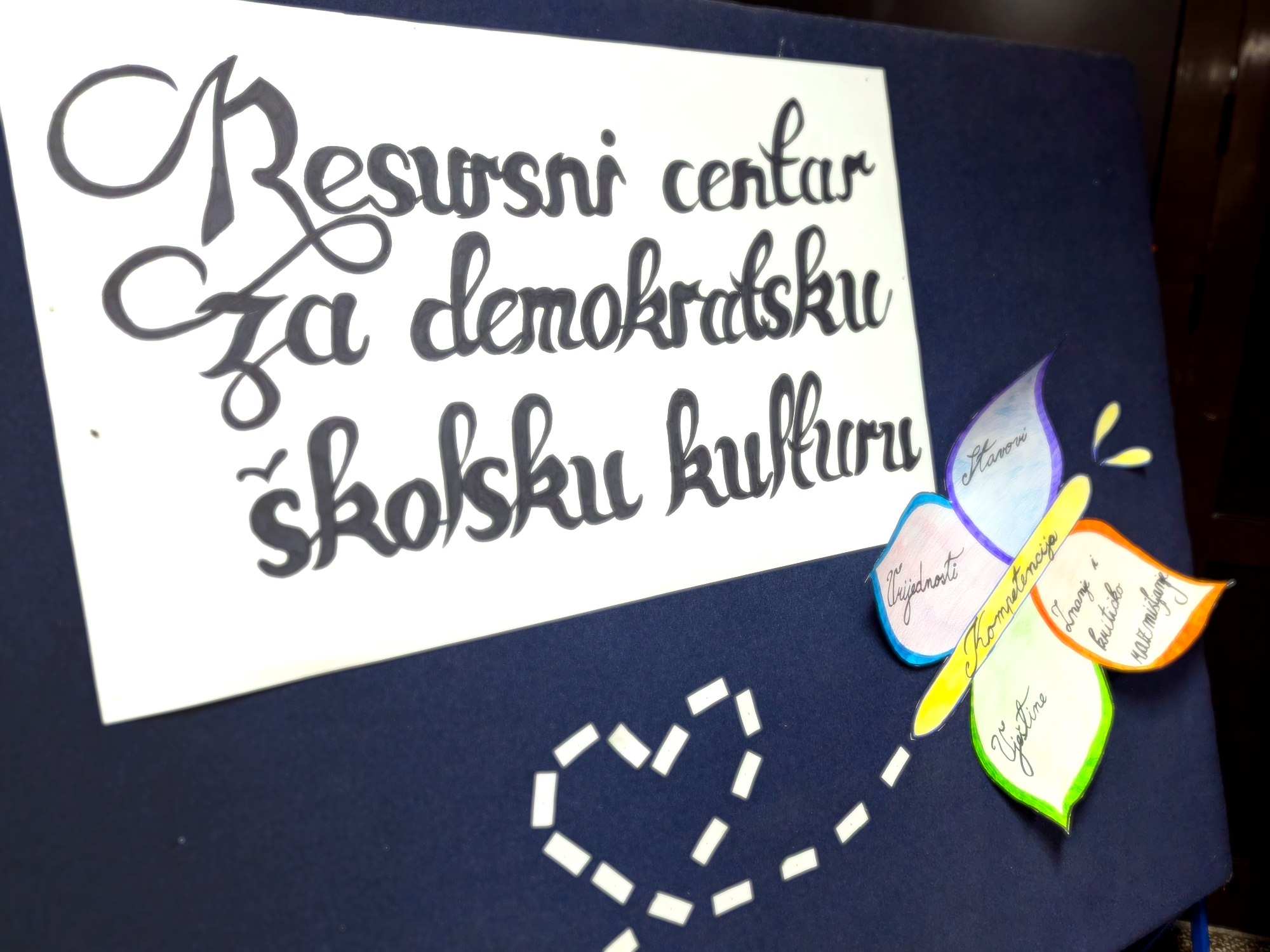With the opening of the first Resource Centre for Democratic School Culture in Republika Srpska, the Catering and Economics School in Prijedor is showing how democratic values can be learned—and lived—through collaboration between students, teachers, and the local community.
In the heart of Prijedor, a quiet yet profound transformation is taking place in the classrooms and hallways of the Catering and Economics School. On 27 March 2025, this school officially opened the first Resource Centre for Democratic School Culture in Republika Srpska, and fourth in Bosnia and Herzegovina, becoming an example of how democratic values can be nurtured through education.
The school’s journey began six years ago when it joined a Council of Europe initiative focused on promoting competences for democratic culture. Since then, it has implemented over 90 activities, engaging both teachers and students in shaping a more inclusive and participatory school environment.
According to Dražena Mršić, the school’s director, they are all getting used to an increased number of activities and greater involvement of students, who are being introduced to small, targeted projects, workshops, or actions where they are assigned tasks and actively participate. She highlighted that all these activities encouraged them to direct their activities toward the competences they believed need to be developed. “As a director, it matters to me when I see that activity planning takes into account values such as conflict resolution, civic spirit, appreciation of democracy, justice, and fairness,” she said.
Mršić noted that the most impactful moments have come from activities rooted in empathy and connection. “We are always most encouraged and most impressed by humanitarian actions, such as the charity bazaar,” she said adding also the importance of live encounters with actors, writers, and other everyday heroes—who can be inspiring and motivate action.
A key innovation in the school’s democratic journey is the Student Critical Thinking Club, launched during an earlier project phase. It now works closely with the Student Council, creating a strong student voice in decision-making processes.
“Students volunteered to join the Critical Thinking Club, which is a prerequisite for the success of any action,” Mršić explained. “We strive for them to be as independent as possible and to learn how to fight for the ideas that matter to them using democratic means,” she said adding that by encouraging an atmosphere of tolerance and respect, and dialogue that values the opinions of others—which they later presented in classrooms to other students—the work of the Critical Thinking Club contributed to creating a more democratic atmosphere throughout the school.
“There’s no need to separately mention their direct involvement in actions, because they were mostly the ones leading activities—presenting the ideas in classrooms and doing everything necessary for those ideas to be realised.”
However, the impact of this work extends beyond school walls. Prijedor’s mayor’s office was represented at the Centre’s opening, reflecting the strong local support.
“The opening of the first Resource Centre for Democratic School Culture in Republika Srpska in Prijedor is of great importance for our city where three nations live equally, where we proudly promote three different cultures and traditions—and that is certainly one of our greatest assets,” Slobodan Javor, Prijedor mayor, said.
“We are proud that, despite certain disagreements in our past, we have managed to build a very high level of coexistence and live in harmony in our city,” Javor noted stressing that democratic learning reinforces the city’s values.
“We believe that promoting democracy and human rights in this way, especially among school-aged children, will further strengthen the views and narratives we uphold—solidarity, equality for all, and coexistence.”
For him, this initiative also represents a modernisation of education. “This kind of teaching will also enable interaction between teachers, parents, and all other relevant members of our local community in the process, which we see as very positive and useful.”
The mayor also stressed the importance of cooperation between schools, authorities, and the community in promoting democratic values among youth. “We believe it is extremely important and that it is a chain that must be strong and firm in every segment,” he said.
“That is why we, as a local community, have been working for decades to develop awareness among all our citizens—especially the youngest—of the need to preserve democratic values. We believe we have been very successful in that.”
The Resource Centre for Democratic School Culture in Prijedor is part of the action “Quality education for all” in Bosnia and Herzegovina which is part of the European Union and Council of Europe’s joint programme “Horizontal Facility for the Western Balkans and Türkiye.” As democratic school culture takes root here, students and teachers alike are proving that inclusive values grow best when nurtured by participation, mutual respect—and a shared belief in a better future.


